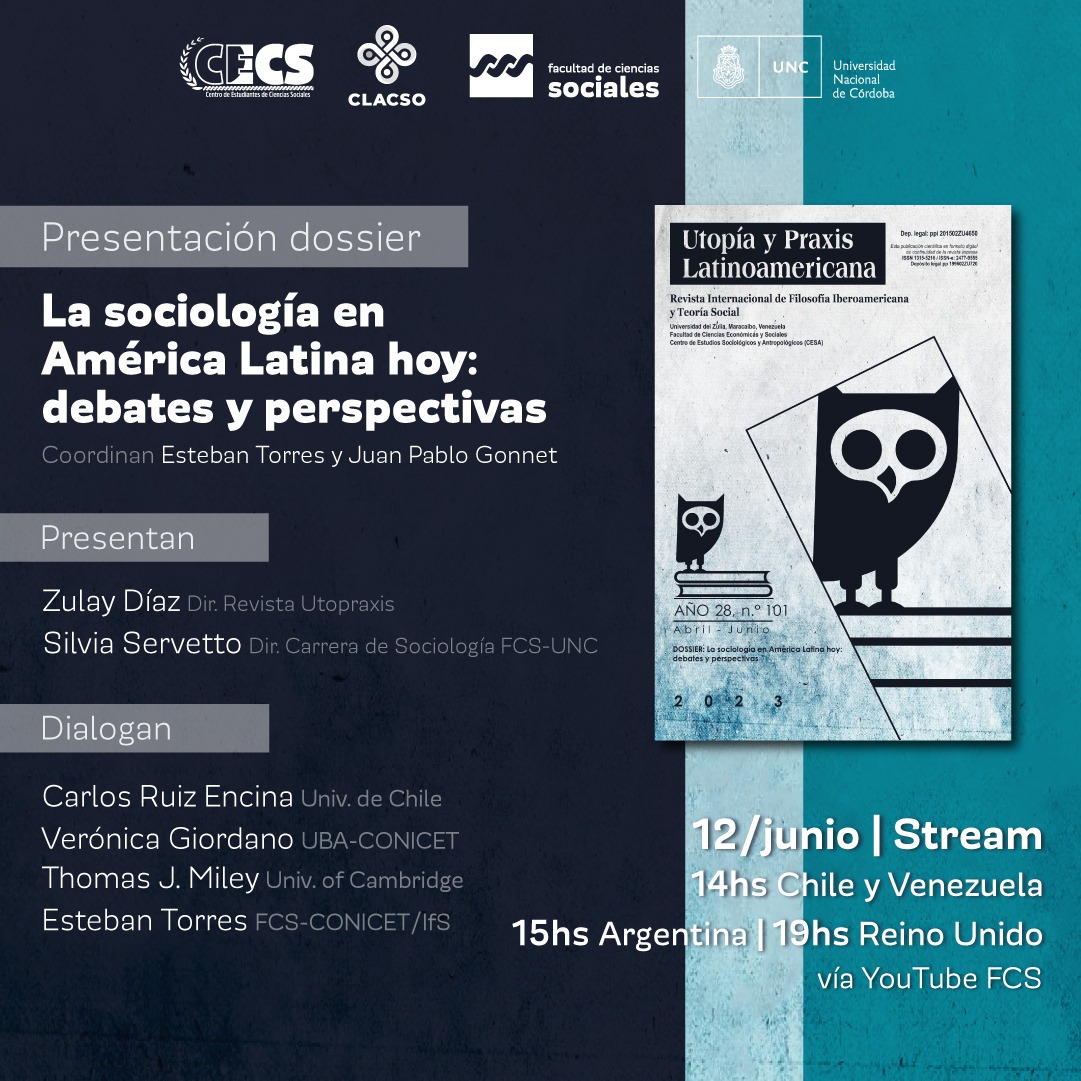Hacia una psicología contextualizante
Resumen
Las terapias tradicionales, orientadas al cambio en áreas disfuncionales -con resultados no siempre satisfactorio- se basaron en las ciencias clásicas. Se cuestiona si sus fundamentos son coherentes con la complejidad de los problemas a enfrentar. Es pertinente dar una mirada a su proceso evolutivo, pues comenzaron con teorías objetivantes, continuaron con posicionamientos subjetivantes, hasta indagar los elementos contextualizantes presentes en la terapia familiar. Se incluye una crítica a los dos primeros posicionamientos, que no han dado respuesta a la complejidad a enfrentar. Se necesita una psicología contextualizante que abarque los elementos de la dinámica compleja presentes en la condición humana.Citas
SOTOLONGO, P (2013). Presentación PPT. Especialidad Pensamiento y Ciencias de la Complejidad. Instituto Global de Altos Estudios en Ciencias Sociales, IGLOBAL, Santo Domingo, República Dominicana.
HOLLING, CS; BERKES, F & FOLKER, C (1998). Linking Social and Ecological Systems: Management Practices and Social Mechanisms for Building Resilience, Science, Sustainability, and Resource Management ed. Fikret Berkes and Carl Folke, Cambridge, UK: Cambridge University Press, pp. 342-362.
ADAMS, WM (2006). El Futuro de la Sostenibilidad: Repensando el Medio Ambiente y el Desarrollo en el Siglo Veintiuno. Reporte de la Reunión de Pensadores, Zurich, pp.29-31 January: www.iucn.org
HOLLING, CS; BERKES, F & FOLKER, C (1998). Op. cit.
AUDOUIN, M, PREISER, R; NIENABER, S; DOWNSBOROUGH L; LANZ, J & MAVENGAHAMA, S (2013). “Exploring the implications of critical complexity for the study of social-ecological systems”, Ecology and Society, 18 (3): p.12. http://dx.doi. org/10.5751/ES-05434-180312. Published here under license by the Resilience Alliance
SOTOLONGO, P (2012). “Looking Through Ulanowicz’s “Third Window””. Journal Article Axiomathes, Vol. 22, Issue 2, pp. 207- 221 Springer Netherland. http://dx.doi.org/10.1007/s10516-011-9175-7
ULANOWICZ, R (2009). A Third Window: Natural Life beyond Newton and Darwin. Templeton Foundation Press, USA.
RESILIENCE ALLIANCE (2007a). “Assessing Resilience in Social-Ecological Systems, A Workbook for Practitioners”. Revised Version 2.0. Resilience Alliance. Online: http://www.resalliance.org /3871.php
Ibídem.
SOTOLONGO, PEDRO L. (2012). Op. cit.
Ibídem.
Ibídem.
SOTOLONGO, P (2011). Complejidad y morfogénesis: De las propiedades de los sistemas a la existencia misma de tales sistemas. Instituto de Filosofía de La Habana, Cuba.
HEYLIGHEN F; CILLIERS P & GERSHENSON, C (2007). Complexity and philosophy. In Complexity, Science and Society, J Bogg, R Geyer (eds). Oxford, UK: Radcliffe.
ULANOWICZ, R (2009). Op. cit.
AUDOUIN, M; R. PREISER; NIENABER, S; DOWNSBOROUGH, L; LANZ, J & MAVENGAHAMA. (2013). Op. cit.
CILLIERS, P (2005). “Knowledge, limits and boundaries”. Futures, 37, pp. 605–613.
AUDOUIN, M; R, PREISER; NIENABER, S; DOWNSBOROUGH, L; LANZ, J & MAVENGAHAMA, S (2013), Op. cit.
RESILIENCE ALLIANCE (2007b). Assessing Resilience in Social-Ecological Systems, A Workbook for Scientists. Version 1.1.
Invariantes morfogenéticas de autosimilaridad transescalar
FORMAN, RTT & GORDON, M (1986). Landscape ecology. John Wiley, New York.
SUBIRÓS, JV et al (2006). “Conceptos y métodos fundamentales en ecología del paisaje (landscape ecology). Una interpretación desde la geografía”. Doc. Anal. Geogr. 48, pp.151-166.
MATTEUCCI, S (2009). “Ecología de Paisajes: concepto, historia, campos de aplicación.” Grupo de ecología del paisaje Urbano y Medio Natural Gepama. Recuperado de: www.gepama.com.ar
BAXENALE, CA (2010). “El estudio del paisaje desde la Geografía. Aportes para reflexiones multidisciplinares en las prácticas de ordenamiento territorial”, Fronteras, 9, pp. 25-31.
SUBIRÓS, JV et al (2006). Op.cit.
MORLÁNS, MC & ROMERO, CM (2007). Evolución de la Fragmentación del Paisaje en el Valle Central de Catamarca Periodo 1973 – 2007. Editorial Científica Universitaria, Universidad Nacional de Catamarca.
BUSTAMANTE & GREZ (1995). “Consecuencia ecológica de la fragmentación de los bosques nativos”. Ambiente y Desarrollo. Junio 1995. Vol. XI, n°. 2. pp. 58-63.
Ibídem.
CARDONA, R; BUSTOS, G & MARTIN FIORINI, V (2011). “Circadiana en el paisaje urbano desde la epistemología compleja”, Orbis. Revista Científica Ciencias Humanas [online]: 6 (Enero-Abril).
MANCHEV, B (2009). La Metamorfosis y el Evento ¿Cómo pensar sin fin? Tabula Rasa, Julio-Diciembre, Bogotá - Colombia, n°.11, pp. 67-81.
Red Atlántica para la Gestión de los Riesgos Costeros. Toma de decisiones y riesgos costeros: Una guía de buenas prácticas.
Citado en el documento de Red Atlántica para la Gestión de los Riesgos Costeros. ANCORIM. Disponible en: http://ancorim. Aquitania.fr
Red Atlántica para la Gestión de los Riesgos Costeros. ANCORIM. Disponible en: http://ancorim.Aquitania.fr
Ibídem.
ALBERTI, M & MARZLUFF, JM (2004). “Ecological resilience in urban ecosystems: Linking urban patterns to human and ecological functions”, Urban Ecosystems, 7, pp. 241–265. Kluwer Academic Publishers. Manufactured in The Netherlands.
HOLLING, CS (2001). “Understanding the Complexity of Economic, Ecological, and Social Systems”, Ecosystems, Springer-Verlag. 4, pp. 390–405.
LEVIN (1999). Fragile dominions: complexity and the commons. Perseus Books, Reading.
HOLLING, CS (2001). Op. cit.
HOLLING, CS; BERKES, F & FOLKER, C (1998). Op. cit.
HOLLING, CS (2001). Op. cit.
RESILIENCE ALLIANCE (2007a). Op. cit.
SOTOLONGO, P (2012). Op. cit.
HOLLING, CS; BERKES, F & FOLKER, C (1998). Op. cit.
SOTOLONGO, P (2012). Op. cit.
Ibídem.
GUNDERSON, L & HOLLING, CS (2001). Panarchy. Understanding transformations in Human and Natural Systems. Island Press.
Ibídem.
WILSON, E (1992). The Diversity of Life, Harvard University Press, p. 33.
HOLLING, CS (2001). Op. cit.
Elinor Ostrom, primera mujer en ganar el premio Nobel de Ciencias Económicas en 2009, por su análisis de la gobernanza económica, especialmente de los recursos compartidos (1933-2012)
OSTROM, E (2007). Sustainable Social-Ecological Systems: An Impossibility? Center for the Study of Institutions, Population, and Environmental Change and Workshop in Political Theory and Policy Analysis at Indiana University. Presented at the 2007. Annual Meetings of the American Association for the Advancement of Science, “Science and Technology for Sustainable Well-Being,” 15–19 February, in San Francisco, CA.












